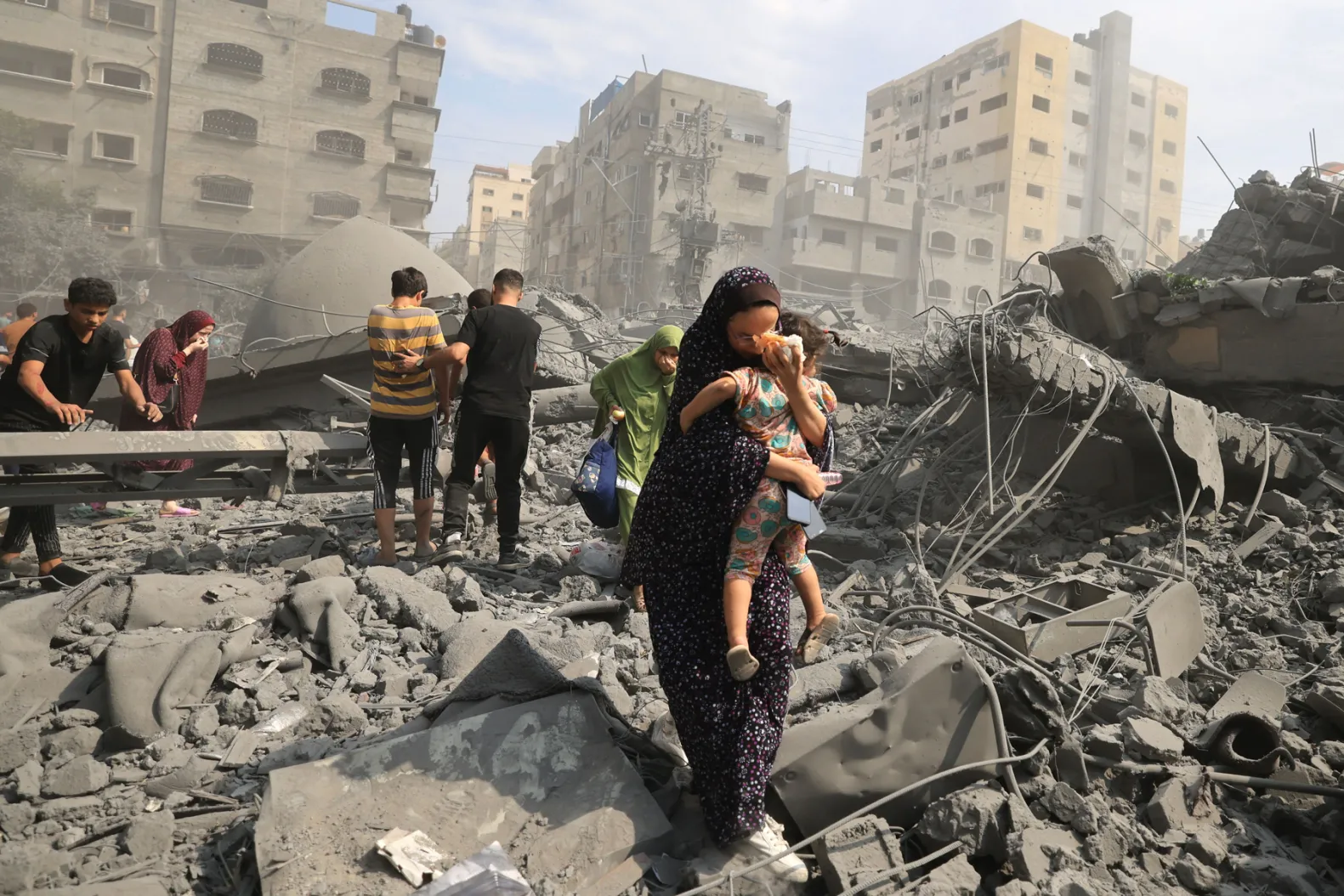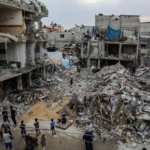Hopes dimmed on Thursday for a truce before Ramadan in the Israel-Hamas war that entered its sixth month with dozens more killed in Gaza, according to the health ministry in the Hamas-run territory.
The ministry said 83 more people had been killed over the previous day, adding to a toll it says has reached 30,800, mostly women and children, in a war that China called “a disgrace to civilisation”.
President Joe Biden was set to announce he had ordered the US military to set up a port in Gaza to get more humanitarian aid into the beleaguered territory by sea, senior US officials said, cautioning it would take “a number of weeks”.
In the wasteland of Jabalia, northern Gaza, Palestinians gathered to receive meals at a distribution point.
- Boy kills uncle while playing with grandpa’s gun in Bayelsa
- Many killed as Air Force hit terrorists’ enclaves in Katsina, Zamfara
“There is no gas to cook our food on. There is no flour or rice,” said Bassam al-Hou, standing beside large, blackened cooking pots among the rubble.
He said children “are dying and fainting in the streets from hunger”.
Fighting began after an unprecedented October 7 attack by Hamas on southern Israel that resulted in about 1,160 deaths, most of them civilians, according to Israeli figures.
Israel has responded with a relentless bombardment, alongside a ground offensive, that Hamas on Thursday said had continued with more than 30 air strikes across the territory.
In Deir al-Balah in central Gaza, around 14 bodies lay in front of a hospital, the bare feet of some protruding from under coloured cloths.
Biden had urged Hamas to accept a ceasefire plan with Israel before the Muslim holy fasting month of Ramadan begins, as early as Sunday depending on the lunar calendar.
The proposed deal would pause fighting for “at least six weeks”, see the “release of sick, wounded, elderly and women hostages” and allow for “a surge of humanitarian assistance”, the White House said.
Gaps ‘being narrowed’
But on Thursday, Hamas’s delegation voiced dissatisfaction with Israeli responses so far and left Cairo for consultations with the movement’s leadership in Qatar.
Egypt’s Al-Qahera News channel said the talks will now resume “next week”.
US Ambassador to Israel Jack Lew denied the talks had “broken down”.
“The differences are being narrowed. It’s not yet an agreement. Everyone’s looking towards Ramadan, which is coming close. I can’t tell you that it will be successful, but it is not yet the case that it is broken down,” Lew said.
Israeli war cabinet member Gadi Eisenkot said Hamas was under “very serious pressure” from mediators to make a “counter-offer”.
“Then it will be possible to advance it and take a position,” he said.
As talks drag on, the United Nations has warned repeatedly that famine looms in the territory.
“It is a tragedy for humankind and a disgrace for civilisation that today, in the 21st century, this humanitarian disaster cannot be stopped,” said Chinese Foreign Minister Wang Yi.
By late January the war had damaged around half of all buildings in Gaza and rendered the territory “uninhabitable” for its 2.4 million people, a UN agency said.
The health ministry on Wednesday said 20 people had died of malnutrition and dehydration, at least half of them children.
During the October 7 attack, militants also took around 250 Israeli and foreign hostages, some of whom were released during a week-long truce in November. Israel believes 99 hostages remain alive in Gaza and that 31 have died.
Israeli Prime Minister Benjamin Netanyahu has faced increasing public pressure over the fate of hostages still held.
He has vowed to press on with the campaign to destroy Hamas, before or after any truce deal.

 Join Daily Trust WhatsApp Community For Quick Access To News and Happenings Around You.
Join Daily Trust WhatsApp Community For Quick Access To News and Happenings Around You.


